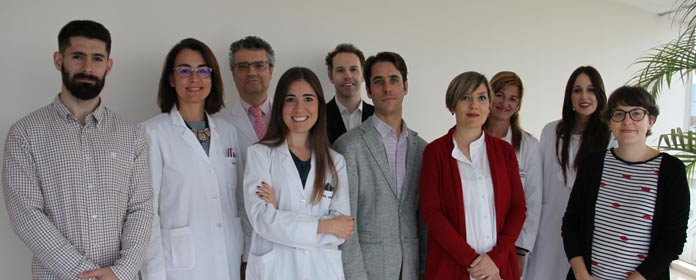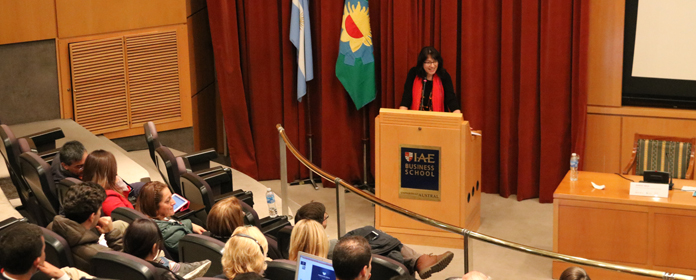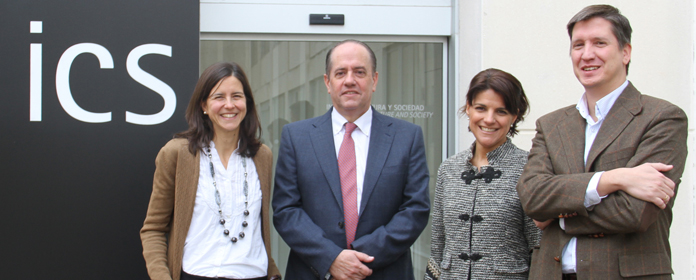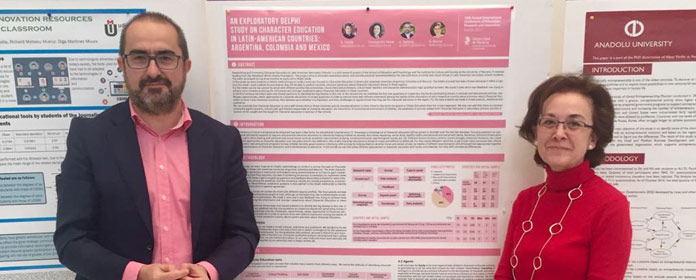Promoting character education in secondary school, an investment in Latin America’s future
25 experts participated in a workshop at the Panamerican University (Campus Mexico) and organized by the University
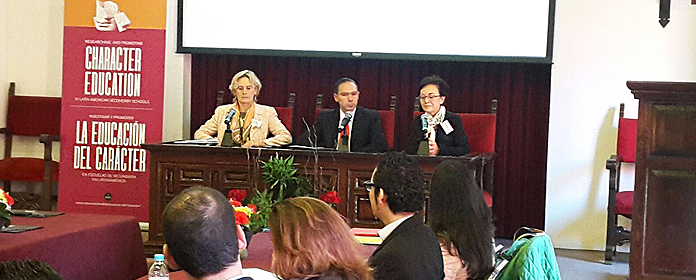
25 academics, professionals from educational institutions, and public policy makers from Mexico, Colombia and Argentina discussed character education in secondary schools in Latin America at the Panamerican University (Campus Mexico).
The workshop was organized by the Researching and Promoting Character Education in Latin American Secondary Schools project, the School of Education and Psychology and the Institute for Culture and Society at the University of Navarra (Spain). The event received funding from the Templeton World Charity Foundation.
Concepción Naval, Dean of the School of Education and Psychology at the University of Navarra and Principal Investigator of the project, gave the first presentation. In her speech, she offered an overview of the initiative, which aims to achieve a better understanding of the formation of positive character traits- particularly social and moral virtues- and to analyze how they can be promoted in secondary schools in Mexico, Argentina and Colombia. The project results will likely impact both students and teachers, those who train educators, researchers in the field of education, public policy makers and parents.
Different cultural and linguistic contexts
Next, Daniel Moulin, a research fellow within the project and at the Institute for Culture and Society of the University of Navarra, comparatively analyzed critical questions about education. "Little attention has been paid to how character education programs can be promoted in different contexts," he said. Dr. Moulin focused on deepening the concept of identity because it "provides a useful tool with which to research, critically analyze and plan character education programs in different cultural and linguistic contexts."
Monica Meza, a professor at the Panamerican University, addressed the “Challenges and horizons for character education in Mexico.” She noted, “The need for education to respond to the demands in today's environment makes it necessary for civic and ethical education to be more than instructive and formative, given that the current situation requires educating Mexicans with a strong national identity, solidarity and respect for each other and for those of other nationalities.”
Likewise, Dr. Meza stressed that, "there is a lot of potential in Mexican youth; in the next fifty years, Mexico will have, as never before in history, a force that cannot be wasted. But it will only be a real force if we can start directing this impetus through character education in a fully human sense."
Mariana Zúñiga, from the National Institute for the Evaluation of Education (INEE), gave a presentation on “Vision, legislation and educational practice in Mexico.” In her speech, she showed the advances made in the exploration of Mexican students’ interpersonal skills within the National Plan for the Evaluation of Learning (Planea), coordinated by INEE. The study involved a sample of 104,204 pupils from sixth grade and 144,517 from ninth grade.
"In the results of sixth-grade students, the type of school revealed significant differences on the solidarity and respect scales, in favor of private schools, while on the conflict management and welfare and collaboration scales, community schools obtained particularly positive results. "A high level of marginalization, not attending preschool and child labor," she continued, "has a considerably negative impact on the solidarity and respect scales, while greater frequency in reading and parental support is positively correlated with outcomes on all of the scales."
Building a more just societyMercedes Oraisón of the Universidad Nacional del Nordeste (Argentina) and Andrea Bustamante of the University of Missouri-St. Louis (USA), gave the last sessions of the first day. They spoke about the vision, legislation and educational practice in Argentina and Colombia, respectively.
Dr. Oraisón stated that, "Argentina and Latin America in general share a social structure characterized by inequality. Large parts of its population are today in situations of high vulnerability, public assistance and subordination. Thinking about moral education and citizenship in this context forces us to consider it as a tool for emancipation and the construction of a more just society."
For her part, Bustamante noted that, "In the last 12 years, in Colombia, significant advances have been made in public policy and legislation on issues related to character education, understood as a set of strategies and approaches that aim to promote students’ well-being and positive development." Among them, she emphasized three important efforts "promoted through national entities to encourage healthy school coexistence and students’ socio-emotional and citizen development, including Citizen Competence Standards, the School Coexistence Law and the Peace Chair.”
"National and local work strategies that provide training, accompaniment and follow-up to the different actors involved are necessary to achieve an educational model that truly has a positive impact on the lives of children and adolescents. Spaces such as training programs for future teachers in public schools and faculties of education are especially important if we want to achieve substantive changes in the long term," she concluded.

